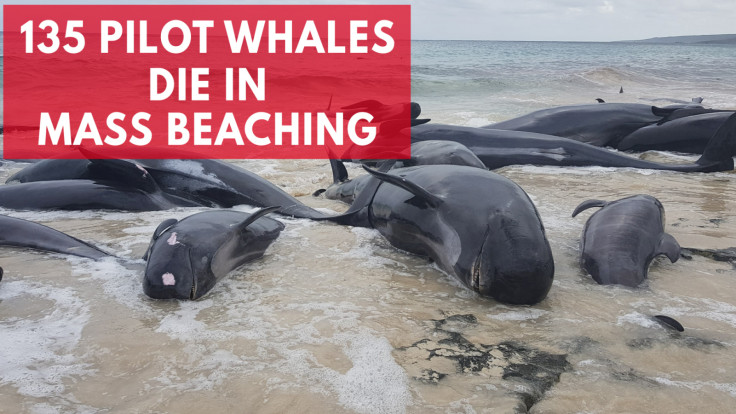NATO exercises blamed for recent mass strandings of whales across Europe
29 recent mass strandings of rare beaked whales across Europe lead experts to believe this was caused by NATO sonar activities
The recent mass strandings of whales throughout Europe has been linked to the NATO sonar anti-submarine exercises off the coast of Iceland in July. In the past few weeks. There have been about 29 reported strandings of rare beaked whales across Europe, leading experts to point their fingers at the sonar activities as the cause. Within just two weeks of the exercises, whales have started to appear in unusual locations around the continent.
Commonly used by both NATO and the US, sonar systems cause a form of narcosis or decompression sickness in deep sea whale species that leads these creatures to beach and strand themselves. They become disoriented and flee in a panic, which causes decompression sickness similar to a human diver who surfaces too fast from a deep dive.
The disorientation, panic and fear from the sonar is probably the reason why rare species of whales have been found stranded in shallow waters in such a short period of time over the past few months. Experts say this only suggests a single recent activity that may have triggered their behaviours.
Although storm weather could also be the cause, whale researchers strongly agree that the recent mass strandings of whales can only be a direct consequence of military sonar.
Aquatic mammals feed in the deep waters of the ocean. Having them show up on shallow waters is a concerning matter as this can be fatal for them.
Quite a number of studies have linked not only military sonar as a primary cause of whale strandings, but this includes seismic surveys for oil as well.
The range of sightings span across the British shores, to the Faroe Islands, the North Sea and even in the most unusual waters like the Fifth of Clyde. This only leads researchers to believe something peculiar is going on. Two rare deep-sea whales have been found dead on the beach just within 24 hours of each other last weekend and 7 bottlenose whales beached themselves in Donegal just a few days ago as well.
Reports from The Guardian said, while experts are firm on their conclusions on sonar as the main culprit, a team of investigators that have examined the cause of death of some of the whales say they have not found any evidence of this. Researchers from the Cetacean Strandings Investigation Programme at the Zoological Society of London are still conducting studies to determine if there could be multiple causes of these deaths.
A Sowerby beaked whale washed up in Lowestoft, Norfolk last Saturday and just a day later, another deep-sea whale was found beached in Portsmouth Hants. Zoologists are baffled at the rate these whales are showing up so far out of their natural habitat. Sowerby's beaked whales live on a diet of squid and small fish making the North Sea and European waters too shallow for them to hunt for their food.
Investigations continue and findings show the whales display no evidence of trauma or any significant evidence of disease.

© Copyright IBTimes 2025. All rights reserved.





















